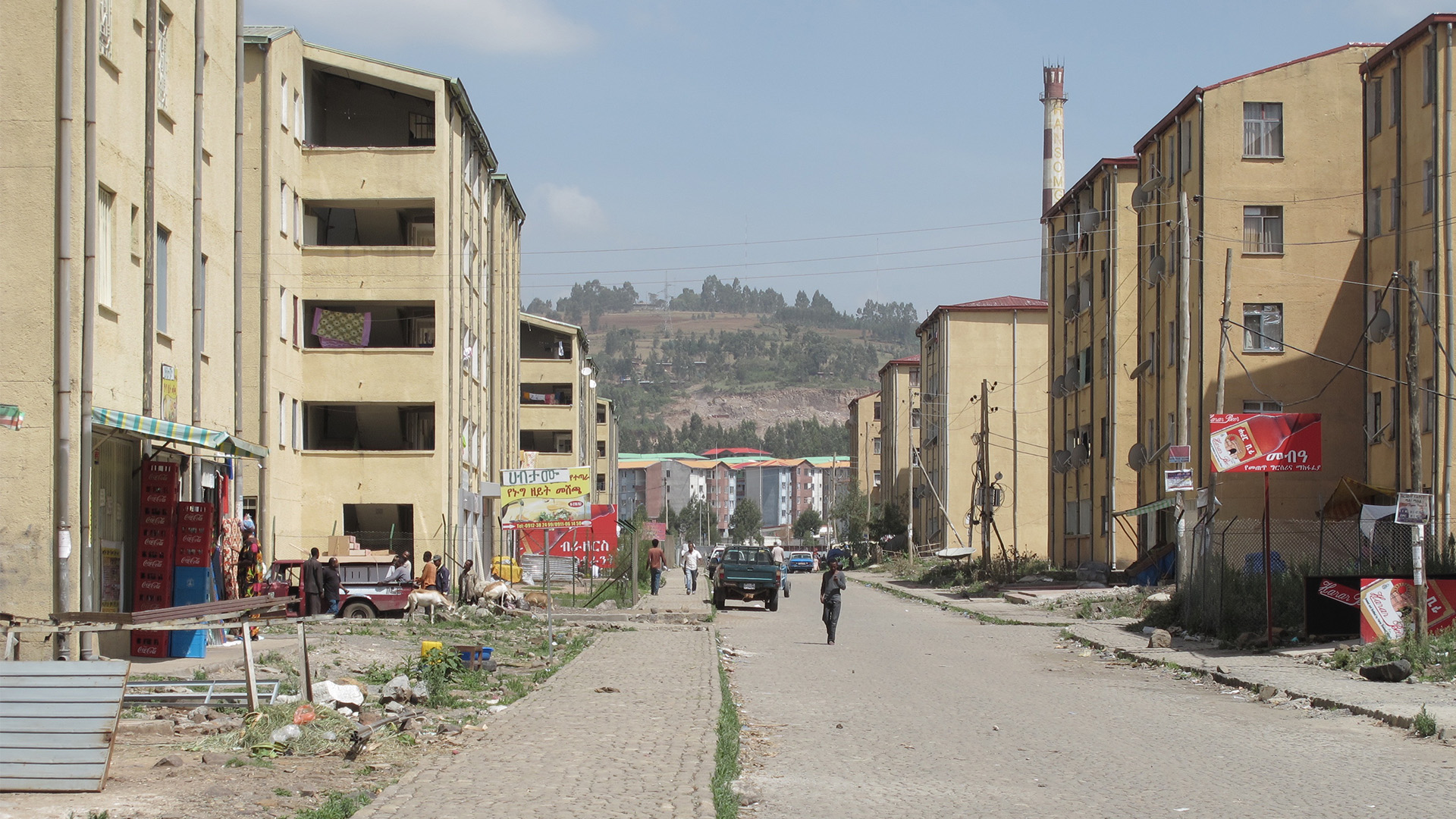Resilient dwelling clusters for urban resettlement
The Global Housing Study Centre will set up a living lab in Addis Ababa, Ethiopia, to create resilient dwelling clusters for urban resettlement. The lab has been made possible with a € 500.000,- grant from the joint SDG research programme from NWO-WOTRO Science for Global Development.

Since 2002, Addis Ababa’s urban resettlement programme has primarily focused on short-term efficiency (speed and affordability), which resulted in housing policies and design-decisions that have produced problematic living conditions. Development induced resettlement demands a holistic approach based on an understanding of patterns of inhabitation and processes of community engagement. This is challenging, because of the shortage of socio-spatial analyses, and lack of actionable information that can be adopted by local actors. The main goal of the project “Addis Ababa Living Lab” is to improve the livelihood of Addis Ababa’s urban dwellers using transdisciplinary approaches of analysis, planning and design. Accurate understanding of social, economic and technological needs and enhanced community participation is crucial.
To achieve this goal, a contextually new co-creation model will be used – engaging a local university (EiABC), government agencies (i.e. Federal Housing Corporation), an NGO, local and international design and planning practitioners, and a local dwellers’ community. The research will use tools and methods such as geomatics and visual ethnography in site surveys, life-cycle-assessment (LCA) to quantify buildings’ sustainability performance, and Societal Cost Benefit Assessment studies (SCBA). This project will produce a policy paper, an actionable framework and build a pilot project on a test site as experiment and feedback loop. These research outputs will be used to impact decisions, for education and upscaling. The project positively contributes to several SDG’s (sustainable cities, good health & well-being, education, clean water & sanitation, decent work & economic growth) and generates knowledge and tools to prevent negative feedbacks.
This project was granted €500.000,- for the entire project in the second call of the joint SDG research programme of NWO-WOTRO Science for Global Development and Dutch co-funding research organisations. This call was themed ‘Tackling Global Challenges through Use-Inspired Research’. This programme funds use-inspired research to the benefit of the most vulnerable people in Low- and Middle-Income Countries (LMICs). Within the same programme, the TU Delft project INSPiRED was granted funding. Read more here.
Global Housing Study Centre
Consortium members:
- Delft University of Technology, Faculty of Architecture and the Built Environment: Marja Elsinga, Dick van Gameren, Nelson Mota, Frederique van Andel, Anteneh Tesfaye Tola
- Delft University of Technology, Faculty of Civil Engineering and Geosciences: Henk Jonkers, Edo Abraham
- Addis Ababa University, The Ethiopian Institute of Architecture, Building Construction and City Development: Elias Yitbarek Alemayehu
- Federal Housing Corporation, Addis Ababa: Zekarias Sebsbie
- RAAS Architects, Addis Ababa: Rahel Shawl
- Mecanoo Architects, Delft: Dick van Gameren
User-committee:
- FDRE Ministry of Urban Development and Housing, Ethiopia: Tsegaye Moshe
- Addis Ababa City – Housing development and Administration office: Senait Damtew
Advisors:
- NGO Mission for Community Development, Addis Ababa: Mulu Haile
- UN Habitat, Urban Planning and Design Lab, Nairobi: Rogier van den Berg
- Erasmus University, Institute for Housing and Development Studies, Rotterdam: Maartje van Eerd